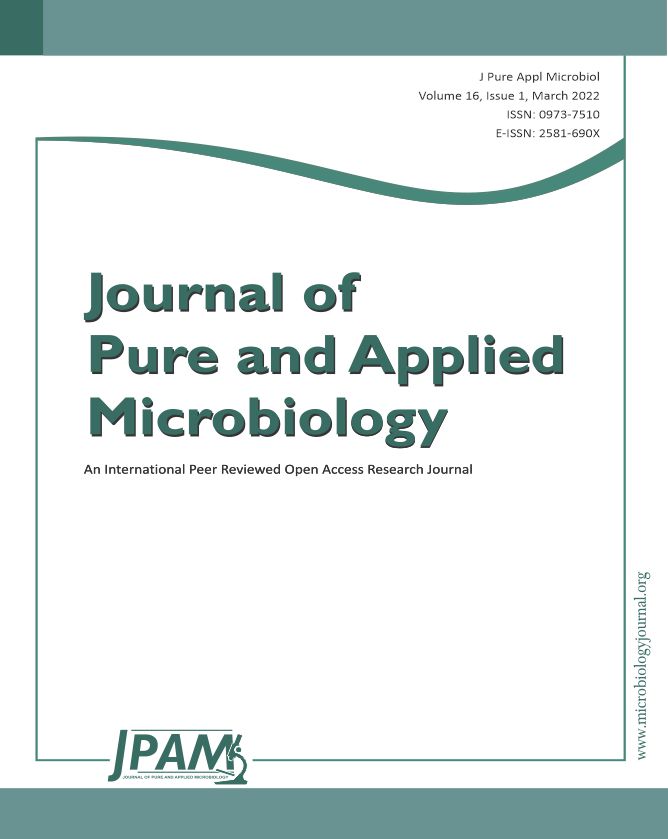Sponge is an invertebrate animal in the Porifera phylum, which potentially produces bioactive compounds that are known as potential agents in producing antimicrobial compounds. This research aims to determine the antimicrobial activity of bacteria isolates obtained from the samples of the sponge of Kodingareng Keke Island-Makassar Indonesia. Samples were isolated by the pour plate method using NA (Nutrient Agar) media and incubated for 1 x 24 hours. A total of 8 bacteria were isolated with code KDR-02-01, KDR-02-02, KDR-02-03, KDR-02-04, KDR-02-05, KDR-02-06, KDR-02-07, KDR-02-08, KDR-02-09 and KDR-02-10. Each isolate of bacteria is purified by using quadrant streaks method until it is obtained by a pure isolate bacteria followed by an antagonistic test. From the antagonist test, bacteria KDR-02-07 continue to be fermented because they have the best inhibition compared to other isolates capable of inhibiting E. coli, S. aureus and C. albicans. Active isolate fermented for 8 days to produce secondary metabolite. After fermentation of 8 days the fermentation medium was separate by filtration then supernatant was extraction using ethyl acetate (1:1) and biomass macerated using methanol. Ethyl acetate extracts and methanol extracts that have been obtained are continued on antimicrobial activity test with diffusion method in order to microbial test microbes E. coli, S. aureus, B. subtilis, C. albicans and A. niger. The results of the study showed that ethyl acetate extract in concentration of 10% can inhibit E. coli and B. subtilis, in concentration of 5% inhibit B. subtilis and in concentrations of 1.25% inhibit A. niger, whereas in methanol extracts not acquired antimicrobial activity. Based on the results of a microscopic test it was obtained that the bacteria were isolated is Gram-positive and basil bacteria.
Antimicrobial, Sponge, bacteria, Gram positive
© The Author(s) 2022. Open Access. This article is distributed under the terms of the Creative Commons Attribution 4.0 International License which permits unrestricted use, sharing, distribution, and reproduction in any medium, provided you give appropriate credit to the original author(s) and the source, provide a link to the Creative Commons license, and indicate if changes were made.


